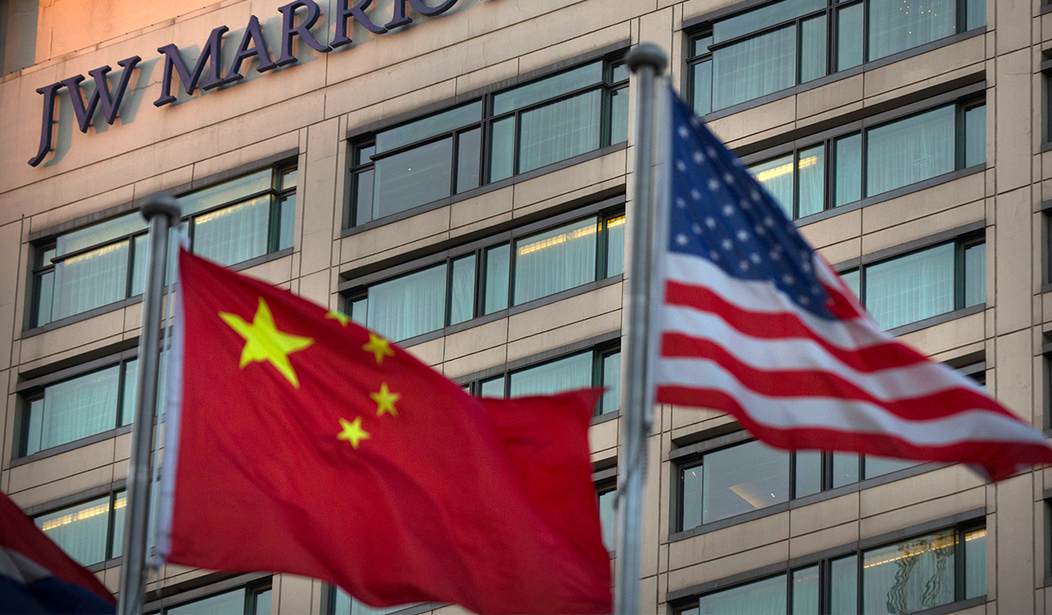The U.S. has lost the trade war with China, according to the whole of corporate America. I write at Asia Times:
NEW YORK – Never before in US political history has the whole of the American business community—more than thirty major business organizations—spoke with one voice as it did in an August 5 appeal to the Biden administration to eliminate tariffs on imports from China.
No entities in American politics are timider than business lobbies, most of whose work involves quiet lobbying for administrative relief and legislative tweaks. Such a high-profile intervention suggests that the business organizations believe that a deal is already underway.
A deal is likely because inflation could poison the Democratic Party’s chances at 2022 mid-term elections and return control of the US Congress to the Republicans. Cutting tariffs is the quickest way to reduce inflation. Beyond the arithmetic of electoral politics, a consensus is emerging that the technology sanctions that Trump imposed on China have failed and may even have backfired.
More than 30 business groups including the Chamber of Commerce, the Business Roundtable, the Semiconductor Industry Association, as well as retailer, farm and manufacturing representatives asked Biden to cut tariffs and restart trade talks with China.
The letter stated: “A worker-centered trade agenda should account for the costs that US and Chinese tariffs impose on Americans here and at home and remove tariffs that harm U.S. interests.”
Shout “Traitors!” all you like: The sad fact is that the Trump tariffs did nothing to stem the flood-tide of Chinese imports to the United States. We now import $550 billion a year of Chinese goods, and the volume jumped above trend during 2021.

Now, that’s $550 billion vs. manufacturing output of $2.4 trillion. Nearly a quarter of the industrial products we consume come from China. And we’re not investing in manufacturing capacity in the U.S. CapEx for the industrial sub-index of the S&P 500 will be down 30% this year vs. pre-pandemic levels in 2019. We have shortages of industrial goods (try to buy a used car) across the supply chain, and we’re doing nothing about it.
I supported Donald Trump in two elections and denounced the Deep State attack on his presidency. But for all his talk about reviving American manufacturing, U.S. industrial output actually fell in 2019, before the pandemic. The 2018 tax cuts funded a lower base rate of corporate taxes by removing incentives to invest in the form of depreciation allowances. So in 2019, U.S. corporations spent more buying back their own stock than on new plants and equipment.
The trade policy didn’t work. I shouted from the rooftops that it wouldn’t work, for example, in this July 2018 open letter to Larry Kudlow.
The tech sanctions against China haven’t worked, either. China has found ways to work around the chip boycott imposed by the Trump Administration. It will build more than 900,000 5G base stations this year, doubling its coverage. It already has 70% of all the 5G infrastructure in the world, and it’s gaining on us. That means factories where industrial robots program themselves, smart cities where autonomous vehicles communicate in real-time, automated ports (already up and running), telemedicine, and other Fourth Industrial Revolution wonders.
Harvard Professor Graham Allison and former Google CEO Eric Schmidt warned Aug. 4:
Most Americans assume that their country’s lead in advanced technologies is unassailable. And many in the US national security community insist that China can never be more than a “near-peer competitor” in AI. In fact, China is already a full-spectrum peer competitor in terms of both commercial and national-security AI applications. China is not just trying to master AI; it is mastering AI.
The pandemic has offered a revealing early test of each country’s ability to mobilize AI at scale in response to a national-security threat. In the US, President Donald Trump’s administration claims that it deployed cutting-edge technology as part of its declared “war” on the coronavirus. But, for the most part, AI-related technologies have been used mainly as buzzwords.’
There is a lot we can do, and I’ve been writing about this for years. Don’t ask me if we’re beaten. We’re not even fighting.










Join the conversation as a VIP Member